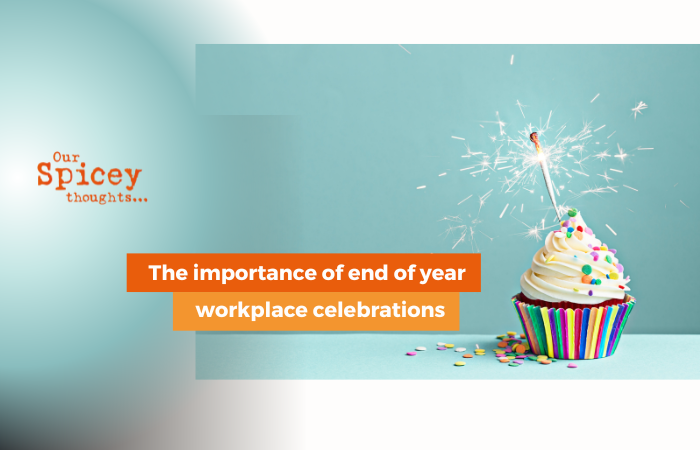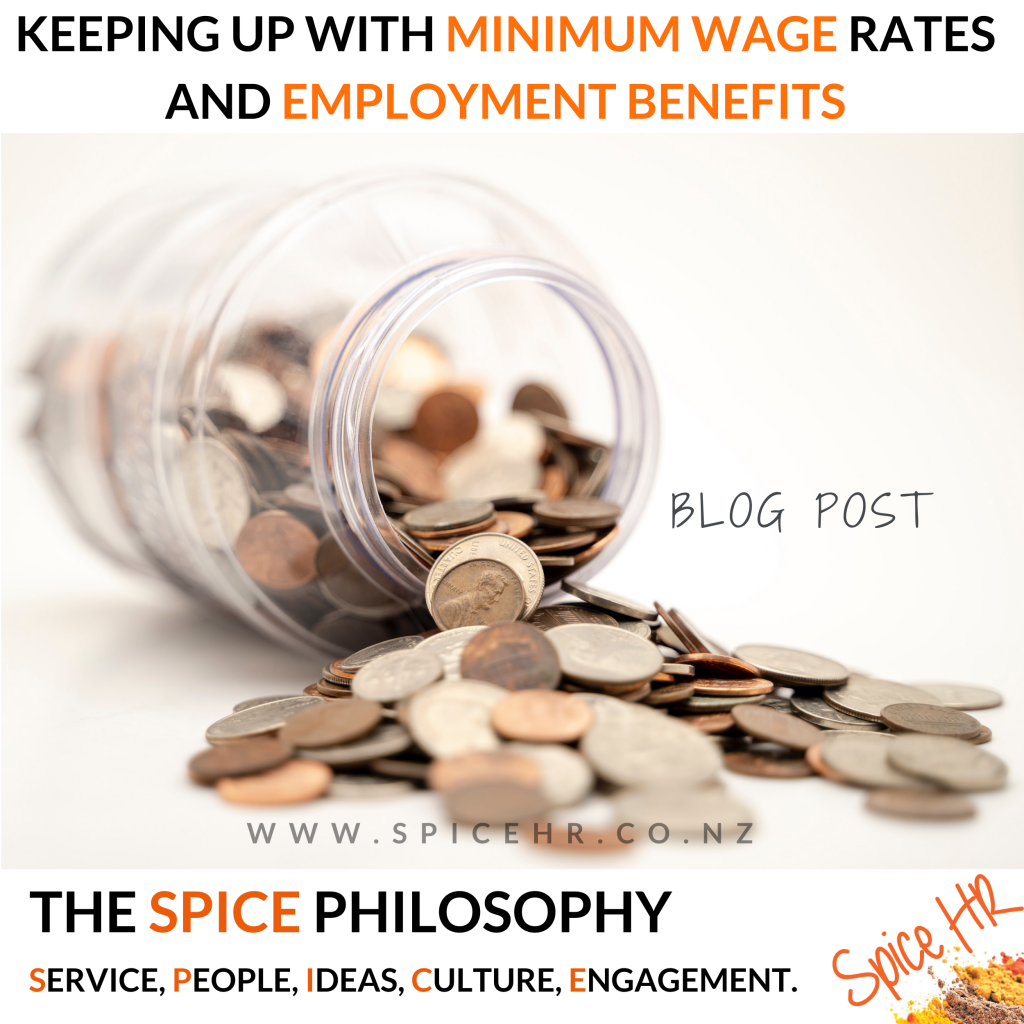
Workplace culture is instrumental to a successful business, so why not commit to fostering a culture of excellence at your workplace?
Last month, we began looking at what good workplace culture looks like and why it matters – if you missed that article, you can read it here.
This month, we are exploring practical strategies for how you can foster a thriving work environment at your workplace.
We like to think of workplace culture as your organisation’s signature dish—you need to add the right mix of ingredients, conduct ongoing taste tests, and add a little heat to bring out the best flavours!
So, here are our top tips for crafting a workplace environment that’s as satisfying as a perfectly seasoned meal!
7 Top Tips For Creating A Thriving Workplace Culture
1. Define Your Culture Clearly
If you don’t take the time to define your workplace culture, it will just go right ahead and define itself. Unfortunately, if that happens, it might not define itself in the way you want!
Your culture should align with your company’s mission, vision, and values. That way, it will represent your business effectively while also creating a consistent and inspiring workplace experience for your team members.
One of the easiest ways to clearly define your culture is to develop a culture statement or manifesto that outlines your company’s core values and mission. Once the statement is established (hopefully with team input!), make sure it’s communicated in everything you do. There are plenty of opportunities to do this – through team meetings, internal newsletters, reward and recognition, right through to visual reminders around the workplace.
Encourage your leaders to reinforce these values through their behaviours and decision-making, that way there is a flow-down effect from the top of your organisation to the team members below.
2. Leadership Sets the Tone
Just like a head chef in a bustling kitchen, leaders set the tone for a workplace environment. Let’s just get it out there, you don’t want to emulate a Gordon Ramsey-style, Hell’s Kitchen situation!
Rather, you want a positive environment that everyone enjoys working in. Remind your leaders that their behaviours, decisions, and communication style influence every aspect of the business. If they are able to model behaviours that align with your company values, it fosters trust in the business and creates a respectful work environment, all key elements for a strong culture.
The way to do this is to equip your leaders with the skills they need to lead with confidence. Leadership development programs are always a great investment for any organisation. They empower your key people with strategies to lead effectively.
That empowerment can filter throughout your whole workplace by having your leaders Role model ‘what good looks like’. Not only does this foster a good culture, but it also helps to reinforce a strong and trusted leadership presence. Build on that by having your leaders engage in regular one-on-one check-ins with their teams ideally quarterly or monthly to provide guidance, support, and feedback.
3. Focus On Employee Wellbeing
A supportive culture isn’t just nice to have—it’s essential! So, employee wellbeing should be a big priority for any business. Employees thrive in environments that prioritise mental health, reduce stress, and encourage work-life balance.
When your team feel valued and supported, they’re more engaged, motivated, and productive.
There are plenty of ways you can put the focus on team wellbeing. Some of the most popular methods are to offer a level of flexibility in your team’s work arrangements, utilise wellness programmes such as mindfulness sessions or fitness challenges, and create designated spaces for relaxation and fun in the office. Don’t forget to encourage regular breaks and ensure workloads are manageable.
4. The Power Of Diversity And Inclusion
A truly dynamic and resilient workplace environment embraces diversity and inclusion. Different perspectives spark innovation, enhance problem-solving, and strengthen team collaboration. When employees feel respected and valued for who they are, they bring their best selves to work.
Diversity comes in many forms – it might be generational where you can harness experience and youth, it might be gender, where you can gain different mindsets and perspectives, or it could be cultural where you benefit from multiple influences and backgrounds. Diversity can be a goldmine for your business development and innovation, but only if inclusion is celebrated.
Foster inclusivity by encouraging open communication channels, building an environment where everyone feels welcome, valued and heard, celebrating various cultural events where appropriate, and ensuring your recruitment practices encourage diverse talent.
5. Recruitment & Retention
High performers don’t just want to work for a paycheck. They want to work for a business and a workplace culture they believe in. A strong culture can help you attract top talent, reduce staff turnover, and create a true sense of belonging for your team members. People who feel connected to their workplace culture are more likely to stay and contribute meaningfully to the company’s success.
You can start displaying your culture from the very first interaction people have with your business. Highlight it during the recruitment process by providing a clear insight into your values, mission and team dynamics. But don’t just stop there – follow it up with an engaging onboarding experience that reinforces company values from day one.
6. Encourage Feedback and Collaboration
Great cultures are built on open communication. Your people need to feel heard, valued, and empowered to contribute ideas – some of the best ideas come from those on the ground! Creating a workplace where feedback flows freely is paramount. This communication should flow through all levels of the business so that even the most junior employees feel heard.
By involving each and every member of your team in open conversations, you will foster trust and encourage innovation.
Communication is a vast area of business. So, you want to make sure you cover all your bases. Some ways to do this would be to set up regular opportunities for feedback via meetings and catch-ups, anonymous employee engagement surveys, open-door policies, or even team brainstorming sessions.
You may even find it useful to draw on the power of technology and use collaboration tools like Slack, Trello, or Miro to encourage open communication and project transparency.
7. Commit To Continuous Improvement
Workplace culture isn’t a one-and-done project—it’s an ongoing journey. That’s why you need to commit to continuous tweaks and improvements. You can do this by regularly assessing, gathering feedback, and making adjustments to keep your culture strong and relevant. As your business evolves, your culture should too!
Conduct culture pulse checks by gathering insights from team members at different levels of your business to discover what’s working and what needs improvement. You can also use team meetings and discussions to ensure ongoing alignment with your company values and goals.
Invest In Your Workplace Environment
Investing in workplace culture is like perfecting a recipe—it takes time, effort, and the right ingredients. The good news? You don’t have to do it alone!
At Spice, we’re passionate about helping businesses create thriving workplace cultures with our Acentia-accredited workshops. These workshops are designed to give your workplace culture the perfect balance of personality and substance. Whether you need to refine your company’s vision, strengthen leadership skills, build high-performing teams, or enhance internal communication, we’ve got a workshop for you!
The interactive sessions provide practical strategies, real-world insights, and actionable steps to create a workplace culture that’s engaging, inclusive, and resilient. Think of them as the secret ingredient to making your business thrive!
Ready to create the ideal workplace environment? Give us a call today, and let’s start crafting the perfect blend for your business!







